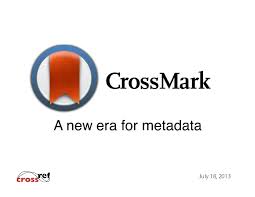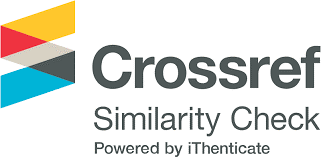Ethics Policy and Retraction
Eletrônica de Potência (Open Journal of Power Electronics) complies with the COPE (Committee on Publication Ethics) guidelines, which aim to encourage the identification of plagiarism, malpractice, fraud, possible breaches of ethics and the initiation of proceedings. Therefore, all texts are inspected in an anti-plagiarism program.
For reasons of research ethics, all articles will be submitted to the Similarity Check anti-plagiarism program: https://www.crossref.org/services/similarity-check/
We suggest that authors
Visit the COPE website http://publicationethics.org, which contains information for authors and editors on research ethics. In the case of research involving human beings, send a supplementary document containing the research subjects' Free and Informed Consent Form (TCLE) or the ethics committee's approval report; ensure that articles containing data acquisition or analysis and interpretation of data from other publications are explicitly referenced. When writing articles that contain a critical review of the intellectual content of other authors, these should be duly cited. All authors must meet the criteria of unpublished authorship of the article and none of the researchers involved in the research may be omitted from the list of authors.
In the case of errata and retractions, they will be published in accordance with the SciElo Guide for Registering and Publishing Errata using the CrossMark tool, as explained at the following link: https://revistas.uece.br/index.php/redufor/Retratacao
Retraction DOI: 10.18618/retraction
If the editor or editors of a journal are informed of any allegation of research misconduct related to an article published in Eletrônica de Potência (Open Journal of Power Electronics), the publisher or the other editors will follow the guidelines of the Committee on Publication Ethics (COPE) to deal with the allegations, i.e. guided by the principles and standards recommended by COPE, the international reference organization for integrity and ethics in scientific publications, there is an extraordinary emergency meeting to deal with the issue. The editorial process is guided by the selection and publication criteria, adopting conduct and ethics, in accordance with https://publicationethics.org/files/Code_of_conduct_for_journal_editors_Mar11.pdf.

It is also strictly necessary to inform the contributions of each author at the time of submission, option which will be included at the end of the article, in the event of its approval for publication. The CRediT specification system (https://credit.niso.org/) is adopted, which considers 14 different roles of authorship or contributions: Project Administration, Formal Analysis, Conceptualization, Data Curation, Writing - First Draft, Writing - Review and Editing, Research, Methodology, Obtaining Funding, Resources, Software, Supervision, Validation and Visualization. The SciELO Guide to Using the CRediT Specification details the application of each contribution (https://wp.scielo.org/wp-content/uploads/credit.pdf).
Members of the editorial team are not prevented from submitting articles to the journal, however, in this case, they will not participate in the monitoring of the evaluation process, which will be closed, in the hands of another responsible editor, with careful attention to ensuring that there is no conflict of interest or interference in the decision on whether or not to approve the article. We believe that our team is ethical and well-qualified on the subject, which makes it possible for them to author articles for the journal.
In the event of complaints, queries or suggestions, users can contact the editors via the email available in the Journal platform's contact field: editor@sobraep.org.br
All complaints, doubts and suggestions will be discussed at an ordinary meeting, or an extraordinary emergency meeting in the event of a report of misconduct, so that the facts can be investigated immediately and the most appropriate decision taken, taking into account Eletrônica de Potência (Open Journal of Power Electronics) ethics and retraction policy.
Any interest or relationship, financial or otherwise, that can be perceived to influence the objectivity of an author, reviewer or editor is considered a potential source of conflict of interest. These should be disclosed when relevant or directly related to the work that the authors/reviewers/editors carry out in producing or evaluating the articles. Potential sources of conflict of interest include, but are not limited to, employment with or financing by a commercial entity, ownership of patents or shares, membership of a company's board of directors, membership of an advisory board or committee, consulting for or receipt of fees involving members of the editorial process, academic favoritism or collegiality, etc.
The existence of a conflict of interest does not necessarily exclude publication, only if it interferes with the quality of the editorial process. If the authors/reviewers/reviewers have no conflict of interest to declare, simply click on the link to this declaration when submitting the article or accepting the reviewer assignment. The discovery of a failure to adequately disclose a conflict of interest at submission or during the review process may result in the rejection of the article or other sanctions for authors, reviewers or editors.
If there is any complaint or observation of misconduct committed by any of those involved during the editorial process, we will halt the process for the due investigation, with prior notice to all those involved. The evaluation process will only continue if misconduct is not proven.
In the event of misconduct on the part of authors, the article will be withdrawn from the evaluation process, and the journal may, by decision of the editorial board, refuse to receive future submissions from the author(s). When the misconduct is carried out by one or more of the editors, they will be removed from their duties at the journal. And if the misconduct is committed by an ad hoc reviewer, he/she will not make any further contributions to the journal and his/her role as a reviewer will be deactivated.
By applying the CrossMark logo to the metadata and pdf file, Eletrônica de Potência (Open Journal of Power Electronics) is committing to maintaining the content it publishes and alerting readers to changes when they occur. With one click, you can see whether content has been updated, corrected or withdrawn, and access additional valuable metadata provided by the member, such as important publication dates (submission, review, acceptance), authors' ORCID IDs, content type, plagiarism, screening status and information on funding, license, peer review and research data location.
For Crossmark purposes, there are two categories of updates: minor and major changes. Minor changes include formatting and spelling corrections for which there are no substantive changes that need to alert the reader, so the CrossMark status is current. Significant changes affect the CrossMark status of the work, so it is considered good practice to publish a correction or retraction notice (with its own DOI) and not put it behind access control. This allows readers to follow the link on the Crossmark button and find more details about the update. Both procedures generate the publication of a new document, classified as an erratum or retraction, which records the correction of the error or the reason for retracting the article, always making reference to the original.
In the case of an erratum, Eletrônica de Potência (Open Journal of Power Electronics) keeps the original document and at the end of the text the correction is recorded with reference to the document that published the erratum. In the case of retractions, the original document is replaced by a message stating that it has been retracted, with reference to the retraction document.











